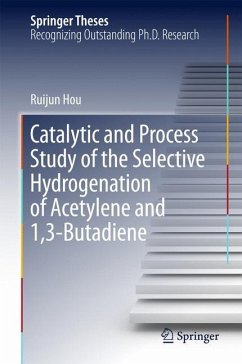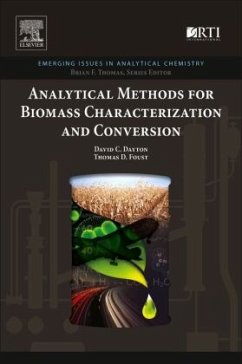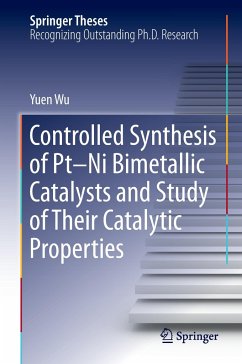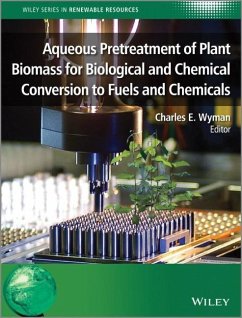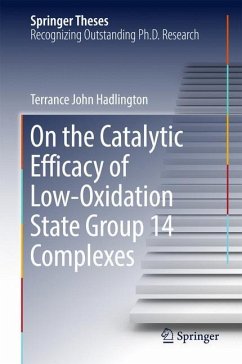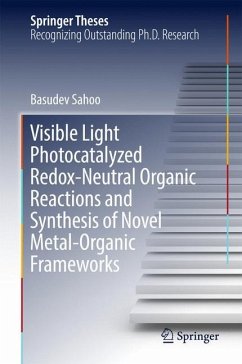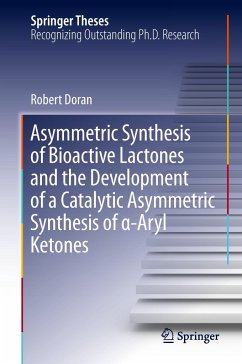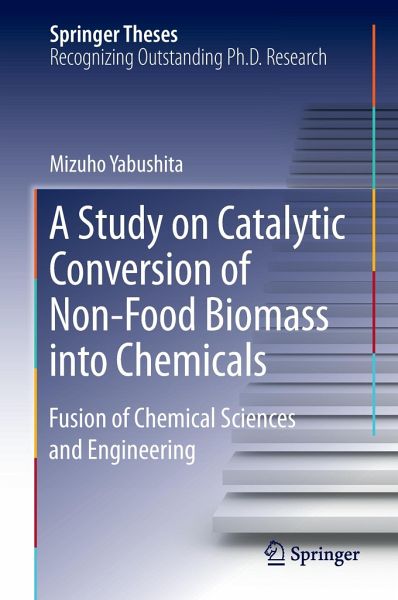
A Study on Catalytic Conversion of Non-Food Biomass into Chemicals
Fusion of Chemical Sciences and Engineering
Versandkostenfrei!
Versandfertig in 6-10 Tagen
38,99 €
inkl. MwSt.
Weitere Ausgaben:

PAYBACK Punkte
19 °P sammeln!
The topic of this thesis is catalytic conversion ofnon-food, abundant, and renewable biomass such as cellulose and chitin tochemicals. In biorefinery, chemical transformation of polymers to valuablecompounds has attracted worldwide interest for building sustainable societies.First, the current situation of this hot research area has been summarized wellin the general introduction of the thesis, which helps readers to becomefamiliar with this topic. Next, the author explains high-yielding production ofglucose from cellulose by using an alkali-activated carbon as a catalyst,resulting in a yield ...
The topic of this thesis is catalytic conversion ofnon-food, abundant, and renewable biomass such as cellulose and chitin tochemicals. In biorefinery, chemical transformation of polymers to valuablecompounds has attracted worldwide interest for building sustainable societies.First, the current situation of this hot research area has been summarized wellin the general introduction of the thesis, which helps readers to becomefamiliar with this topic. Next, the author explains high-yielding production ofglucose from cellulose by using an alkali-activated carbon as a catalyst,resulting in a yield of glucose as high as 88%, which is one of the highestyields ever reported. The characterization of carbon materials has indicatedthat weak acid sites on the catalyst promote the reaction, which is markedlydifferent from reported catalytic systems that require strong acids. Inaddition, the first catalytic transformation of chitin with retention of N-acetyl groups has been developed. Thecombination of mechanocatalytic hydrolysis and thermal solvolysis enables theproduction of N-acetylated monomers ingood yields of up to 70%. The catalytic systems demonstrated in this thesis areunique in the fields of both chemistry and chemical engineering, and their highefficiencies can contribute to green and sustainable chemistry in the future.Meanwhile, mechanistic studies based on characterization, thermodynamics,kinetics, and model reactions have also been performed to reveal the roles ofcatalysts during the reactions. The results will be helpful for readers todesign and develop new catalysts and reaction systems.



